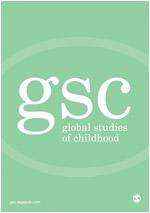 CALL FOR PAPERS/CHAPTER PROPOSALS: Edited Book
CALL FOR PAPERS/CHAPTER PROPOSALS: Edited Book
Publisher: Edward Elgar
The Nordic Wave in Place Branding
Editors: Cecilia Cassinger*, Andrea Lucarelli**, Szilvia Gyimóthy***
Nordic place branding is an emerging field of academic research and practice. The evolution, expansion, and geographical spread of place branding in the Nordic region has been studied in several ways and is echoed in recent journal articles and special issues. The existing body of academic research on the topic demonstrates that place branding in the context of Nordic cities, regions, nations, and destinations is particularly salient to both research and practice (e.g. Lucarelli and Hallin 2015; Cassinger et al., 2016; Cassinger and Eksell, 2017, Gyimóthy, 2017).
The strong focus on the Nordic region is evident in the selection of Swedish, Norwegian, Finnish and Danish cases, strategies, and processes, as well as the researchers’ country of origin (see for a review Lucarelli and Berg, 2011, Chan and Marafa, 2013 Lucarelli and Broström, 2013, Andersson, 2014). Thus there is an opportunity to examine, collect, systematise, and explore diverse instances of the Nordic place branding tradition.In particular, and this is the main argument and feature of the present book, the Nordic research tradition is suited to push critical but hence far unexplored issues in place branding, such as feminism, bio-ethics, sustainability, and social justice.
Although a number of studies have addressed Nordic place brands and branding, however, the peculiarity of branding within the Nordic welfare states remain understudied. The unusual open access to the field of practice granted to researchers (at least compared to Anglo-Saxon and European standard), and the particular political, institutional, cultural environment of the Nordic has not fully been unpacked. The limited scope of previous studies on place branding paired with a widespread international interest for the “Nordic” as both a geographical place, moral orientation, and (normative) discourse calls for more research into the global relevance of Nordic place branding. The Nordic is thus not always confined to a region, but is an idea that travels across the world. The challenge is how research on the Nordic can be expanded in different directions, in order to open opportunities for building theories and pursuing methodologies, which can be extended to the Anglo-Saxon and European field of research and practice.
The aim of this book is to explore the peculiarity of Nordic place branding. The book addresses the Nordic both as an ideological orientation, a socio-economic and cultural construct, a theoretical field, and an empirical context in which to explore theories and
practices of place branding. What are some of the commonalities and divergences of place branding among the Nordic countries?
It is our contention that the peculiarity of the Nordic may be in the concept of Nordic in itself as form of political, economic and cultural outlook, or at a more practical level as manifested in the daily applications and materialization via different practices given by the (un)usual open access which is granted to researchers (at least compared to Anglo-Saxon and European standard). In order to answer the question of the (un)distinctiveness of the Nordic tradition, the present book gathers different accounts of place branding produced by researchers and practitioners in Nordic based institutions (e.g. universities, consultancies, research centers), and grounded in the Nordic political, cultural and economic outlook.
Contributions to the book should address the peculiarity (or not) of Nordic place branding either in a conceptual, methodological or empirical way. Contributions may want to deal with, but are not limited to, the following topics:
- Place branding and its declination (i.e. place marketing, place making, destination branding) in the Nordic Context
- Methodologies and methods of place branding in the Nordic context
- Nordic place branding vs European and Anglo-Saxon place branding
- The institutional, economic, political, cultural context of Nordic place branding activities
- Feminism and gender in Nordic place branding
- Appropriation of the Nordic as an idea/discourse in place branding strategies in other locations
- Eco-ethics and sustainability
- Social media and digital communication
- Democratic, community and participatory elements
- Practitioner-researcher relationships
- Stakeholder involvement
- The moral affordances of Nordic place branding (e.g. ‘Jantelagen’)
Interested authors should email their abstracts (300-500 words) to Andrea Lucarelli (email: andrea.lucarelli@fek.lu.se) before January 30, 2018. Abstracts should specify the purpose, contribution, significance, and relevance to the anthology. Authors are also requested to
indicate which of the three sections in the book that their submission addresses (i.e. conceptual, methodological, empirical).
Authors will be notified no later than February 15, 2018 on the decision of their abstracts.
Full chapters (5,000-6,000 words) should be submitted by the end of May, 2018.





